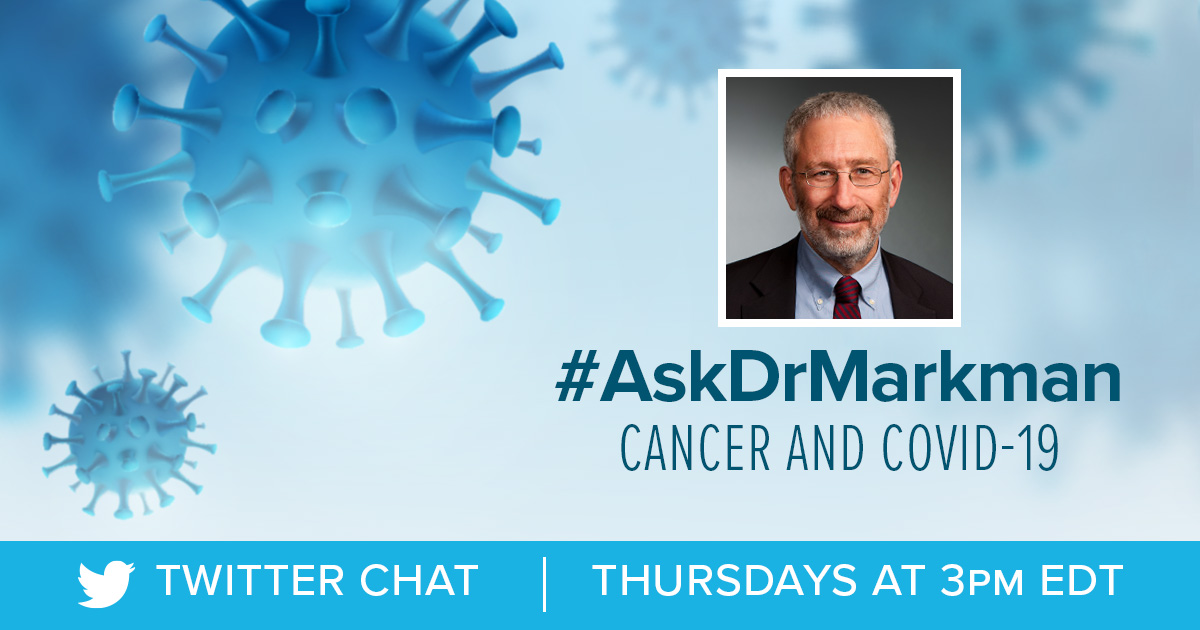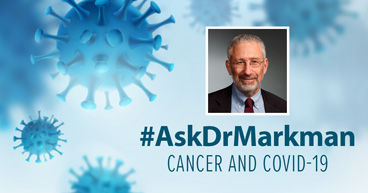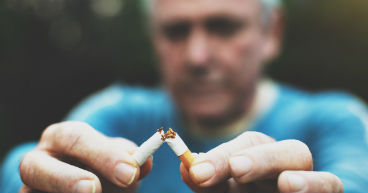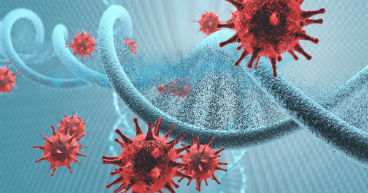
The COVID-19 pandemic has created a constantly evolving flow of new and sometimes confusing information. Cancer patients have many questions about how the virus may affect them, their access to ongoing treatments, their overall health and steps they can take to help reduce risk of infection. Maurie Markman, MD, President of Medicine & Science at Cancer Treatment Centers of America® (CTCA), has launched a weekly Q&A hosted on Twitter to answer your questions, in real time and as questions are sent to us online and by phone. Follow us on #AskDrMarkman. Here’s this week’s chat:
Question: I am a cancer survivor, and our region of the country recently relaxed restrictions, and large gatherings are now allowed. How can I stay safe if I decided to participate in such events?
Answer: The U.S. Centers for Disease Control and Prevention (CDC) has recently updated its guidelines for individuals who elect to participate in outside-the-home events, including large gatherings. Recommended precautions include maintaining a distance of at least six feet from others, avoiding hugging and shaking hands, routinely using face coverings, and having tissues and hand sanitizer available when needed.
Q: I keep seeing the malaria drug, hydroxychloroquine, mentioned in the media when talking about potential COVID-19 treatment or prevention strategies, but I thought experts have been saying it’s not been shown effective. Which is it?
A: The latter. Initial studies did not support hydroxychloroquine's use in either treating or preventing a COVID-19 infection, and experts have also pointed out that its use comes with potentially serious side effects. Now, a more recent report of a well-designed and conducted trial involving 800 participants deemed to be at high risk for COVID-19 found that hydroxychloroquine did not reduce the risk of a documented infection.
Q: As a patient actively undergoing cancer treatment, I am naturally interested cancer research. Is COVID-19 impacting scientists who are working in develop new treatments for serious illnesses, like cancer?
A: As you would suspect, the COVID-19 pandemic has had a major negative impact on laboratory research efforts around the world. An April survey by The American Cancer Society found that about half of the scientists responding to the survey said their cancer research had been halted by the COVID-19 pandemic.
Q: My sister recently completed cancer treatment, and we hope to attend an open-air concert together to celebrate this milestone. What steps can we expect the venue to make to protect us from a COVID-19 infection?
A: This is a very important question. The CDC has recently updated guidelines to organizers of such events as part of their planning process. These include limiting the number of individuals in restrooms at one time, and posting signs clearly informing people to wear face masks and wash their hands.
Q: My brother is being treated for cancer. I’ve been avoiding close contact with him, even though I have no symptoms of a COVID-19 infection. Should I be worried about infecting him if I’m not showing signs of infection myself?
A: The answer is yes, you should continue to remain vigilant, although researchers are studying the likelihood an asymptomatic individual can transmit the virus to others. A recent detailed study involving young U.S. Navy service members in close confinement on a ship revealed that one-fifth of infected individuals reported no symptoms of the disease.
Q: I am a cancer survivor and have been treated for hypertension for many years. Is there any evidence that COVID-19 patients with other medical conditions have a better outcome than earlier reported?
A: Early reports from several countries suggested a number of pre-existing conditions, like hypertension, substantially increased the risk of death from COVID-19. But more recent reports have suggested substantial improvement in COVID-19 outcomes if serious symptoms developed with other conditions. In the case of underlying hypertension, a 50 percent reduction in the risk of death has been noted compared to initial reports.
Q: Now that stay-at-home orders are being ended across the United States, do we know how effective they were in preventing COVID-19 infection?
A: While this is an important question, it is difficult to provide a definitive answer since we don’t know exactly what would have happened in the absence of this strategy. However, a detailed analysis has provided solid evidence that stay-at-home orders and other interventions imposed around the world prevented or delayed about 62 million COVID-19 infections.
Q: My wife is a cancer patient, and both she and I diligently use face masks when we go out in public. However, we see many others not using face masks, so it makes me wonder if they really work as well as some experts suggest.
A: Of course, it is not possible to know exactly how effective any individual strategy is in our efforts to prevent COVID-19 infections in individuals or our entire society. But a recently published modeling study examining the transmission of COVID-19 in countries that had a strict face mask policy showed they had far lower rates of COVID-19 spread and fewer deaths compared to countries where such a policy was not adopted.
Q: I know COVID-19 and cancer are totally different diseases, but does it make sense that some cancer treatments, especially those designed to improve immune function, can be used to treat COVID-19?
A: Generally speaking, immunotherapy drugs used to fight cancer are very specific to that disease, and are not likely to be effective against COVID-19. But early data from an interesting, small study found that a drug used to block the Bruton tyrosine kinase (BTK) protein reduced respiratory distress and an overactive immune response in some COVID-19 patients. BTK inhibitors, used to treat some cancers, work by blocking a protein called cytokines, which help stimulate an immune response. In some severe COVID-19 infections, like some cancer patients, the immune system is over-stimulated. This creates a dangerous, hyper-inflammatory state (called a “cytokine storm” or "cytostorm" for short) that attacks the organs, in addition to the infection, and in cancer patients, may cause cells to grow out of control and lead to cancer. More studies are needed, but the initial results suggest promise that this cancer drug may also help COVID-19 patients at a stage where the disease has no proven treatment.
If you’re a cancer survivor or in active treatment and are concerned about how COVID-19 may impact you or your care, please contact your care team.
Learn more about how COVID-19 may be compounding sleep issues in cancer patients.



